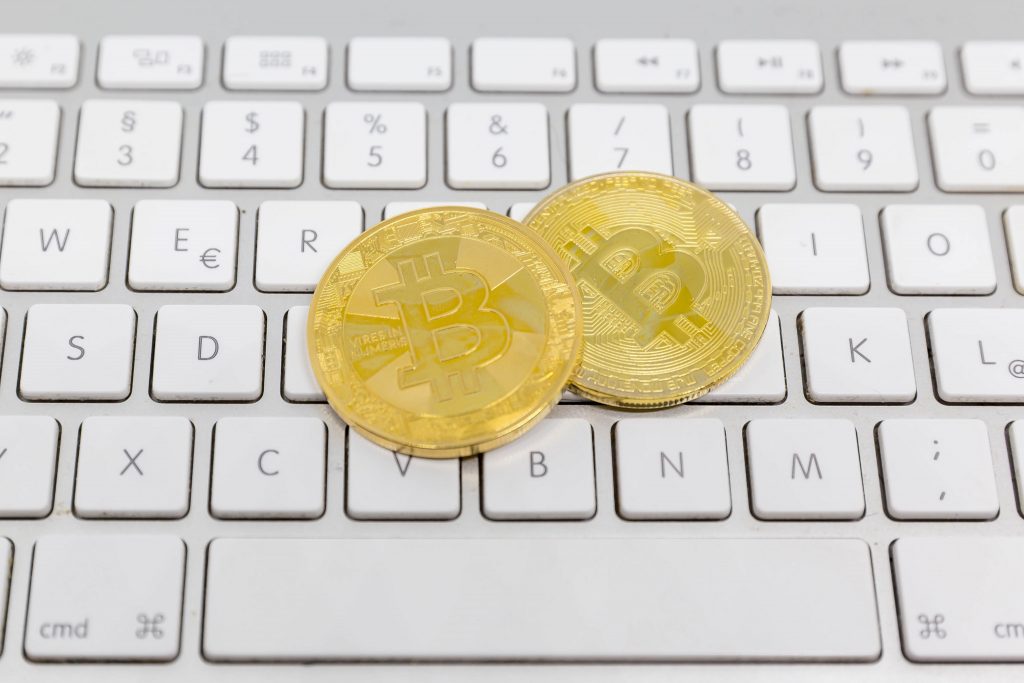Almost every technology with mass market applications is being touted as disruptive these days. That might be true for most of them, but let’s just agree that it’s getting increasingly difficult to separate reality from hype. Among the buzzmakers, blockchain is a technology whose growth trajectory has been able to outshine that of most others. Primarily, that has been a result of bitcoin, the digital currency that’s making the world go crazy. It’s surprising how little the world knows about the true industry-disrupting potential of the real technology backing the cryptocurrency market — blockchain. Imagine the state of the future if blockchain disruption were to impact industries like finance, health, defense, real estate, and several others in a similar manner!
Turns out, you might not have to imagine, because it’s on track to becoming a reality now. Let’s tell you more about industries that will soon be reimagined because of the impact of blockchain disruption.
Supply chain management

Blockchain provides a tamper-proof, permanent, and decentralized system of transaction recording. This essentially eliminates human errors and information-relay delays, both of which are major challenges for traditional supply chains. Also, blockchain technology can capture data such as costs incurred, time taken, people involved, raw materials used, wastage resulted, and emissions produced at every stage of the supply chain.
This will allow supply chain managers to identify outliers, waste points, and process bottlenecks very quickly. Also, this will allow them to calculate the real carbon footprint and emission levels associated with supply chain processes. Because production can be tracked from the source with zero information manipulation, the authenticity and fair-trade status of products can also be reliably established by using blockchain technology in supply chain management.
Blockchain Internet of Things (BIoT)
Tech giants are working overtime to bring together two technology powerhouses — IoT and blockchain. IBM and Samsung are at the forefront, working on a concept called Adept, where they’re trying to build a decentralized ecosystem of connected devices. This will eliminate the requirement of a centralized location to handle IoT communication. Under this concept, devices will be able to exchange information to update software, make operational adjustments, regulate energy usage, and manage bugs. BIoT also aims at bringing together the huge amount of data from billions of connected devices for constructive use by analysts, regulatory bodies, government agents, and enterprises.
Charity
One of the common issues faced by charitable foundations is accountability and prevention of corruption. Often, large donations fail to make their way to the intended audiences. Blockchain is a solution here, even when the value being transferred is not monetary. BitGive, for instance, is a startup that is based on the idea of using bitcoins to deliver donations to charities. When donors will be able to see and be certain that their donations actually make it to the needy, the biggest wall separating charitable organizations and prospective donors will be brought down.
Instant messaging
Yes, it’s an industry in its own rights. It’s amazing how IM apps are already embracing blockchain technology, primarily to launch their initial coin offerings (ICOs). Telegram, a decentralized messaging platform, for instance, is planning to do the biggest ICO in the market, pinning hopes on its enviable 170 million strong user base. Line, an IM app popular in Japan, is also planning to launch a cryptocurrency trading platform. Kik, another chatting platform, has already done an ICO in the form of an in-app currency.
Banking

Banks are the storehouses of value. Whereas cryptocurrencies were initially seen as a challenge to the traditional banking ecosystem (not without reason), the leading banking giants of the world are looking for opportunities to embrace blockchain and use it to, at least, manage backoffice operations and execute transactions in a better manner.
UBS, the Swiss bank, and Barclays, the UK-based financial services powerhouse, for instance, are experimenting with blockchain to expedite settlements. Estimates suggest that up to $20 billion in middlemen costs could be eliminated by the use of blockchain on a global scale in the banking industry. Another buzzword in this sphere is Corda, a blockchain platform that intends to be the operating system of choice for players in financial markets.
Education
Verification of academic qualifications and credentials, essentially, has always been a crucial, labor-intensive, and expensive link in the value chain for knowledge markets. Blockchain can offer a reliable solution, wherein the credibility of the academic qualification claims of an individual can be established quickly using tamper-proof tokens.
Sony Global Education is a good example; the venture has created an academic platform in close collaboration with IBM, with a focus on using blockchain technology to secure student records. Another example is Learning Machine, a software startup that is working in collaboration with MIT Media Lab to develop infrastructure for safeguarding academic credentials on blockchain.
Intellectual property
Blockchain disruption has all the makings of a boon for the entertainment market, primarily because it has the potential to streamline revenue distribution. In an industry where value exchanges are centered on intellectual property, this is a tremendous upgrade as compared to the fiduciary agreements used in most markets today. Smart contracts, a pretty progressive application of blockchain, can be used to make sure that value is distributed across the designated shareholders as per agreed licensing agreements. Ascribe.io provides a platform for maintaining trackable records of ownership between artists and their intellectual property.
Blockchain disruption: Only the beginning
As the technology matures, blockchain disruption will penetrate into markets other than cryptocurrencies and it will reshape industries for the better.
Photo credit: Shutterstock



